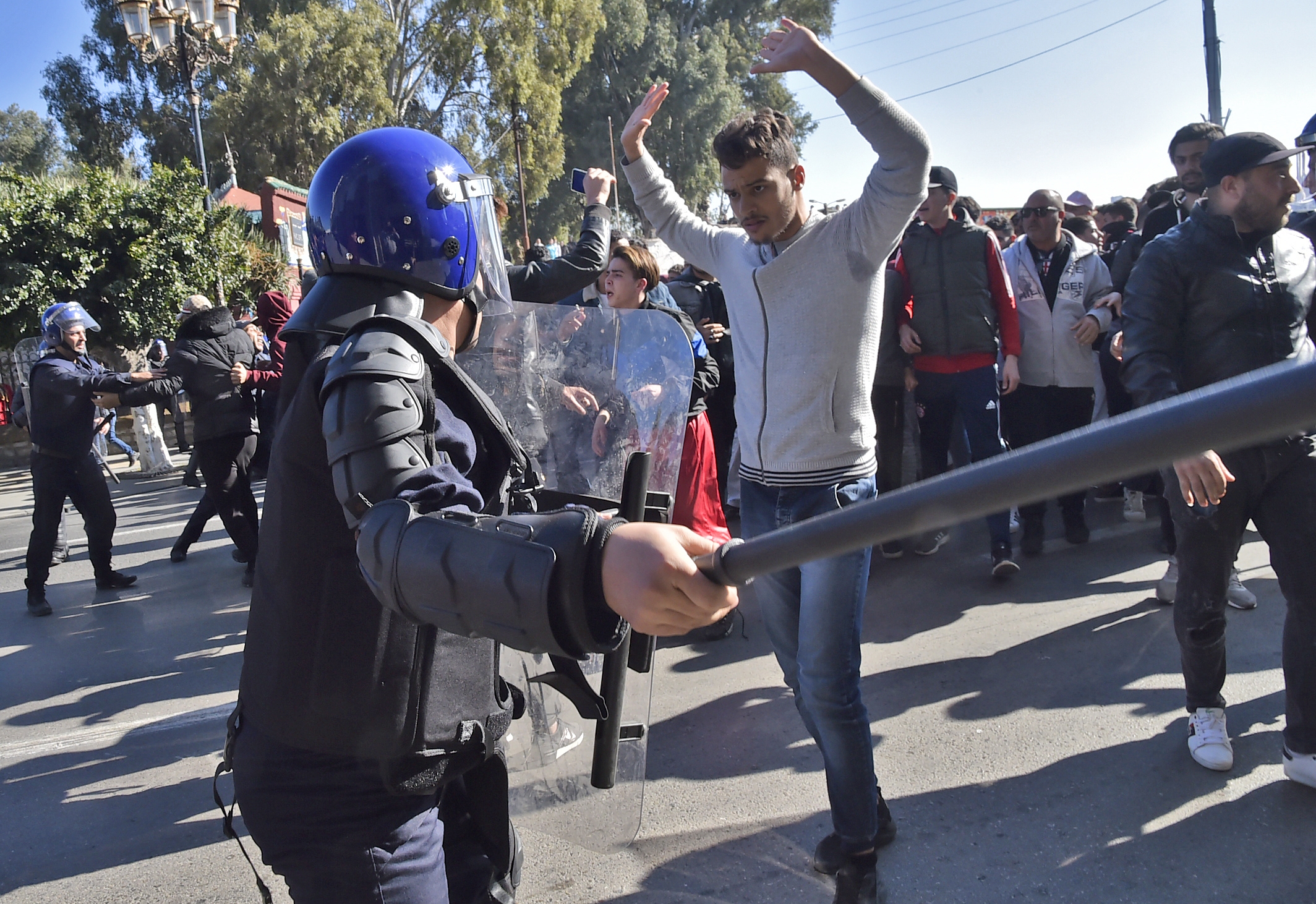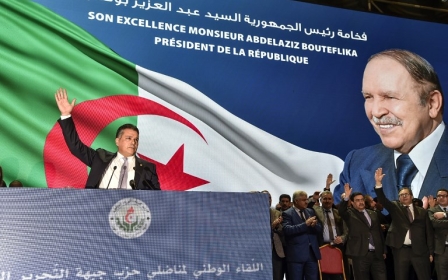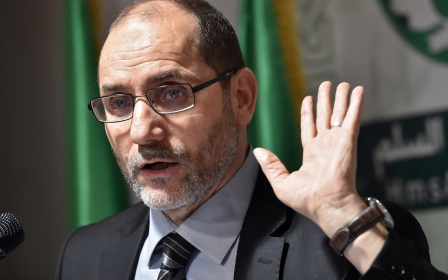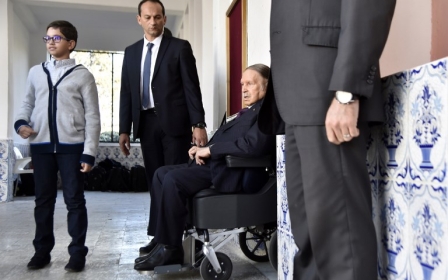Algeria rocked by mass protest against Bouteflika re-election bid

Thousands have taken to the streets in the Algerian capital Algiers to protest a re-election bid by longtime ruler Abdelaziz Bouteflika, who is now seeking a fifth term as president of the North African country.
The 81-year old leader - in office since 1999 - has said he will contest the 18 April presidential election, despite concerns over his health.
He has been seen in public only a handful of times since suffering a stroke in 2013.
"No to Bouteflika and no to Said," a crowd chanted while marching through the centre of Algiers. The president's youngest brother Said Bouteflika is a presidential adviser.
The protest was peaceful despite a heavy security presence.
"We and the security are brothers," some protesters chanted.
The protest came after mosque preachers had warned in Friday prayers against demonstrating, warning of violence.
Bouteflika’s re-election bid comes after the ruling National Liberation Front (FLN) party picked him as its official presidential candidate. Several political parties, trade unions and business organisations have already said they would support his re-election.
He is expected to easily win the vote as the opposition remains weak and divided.
But many young people feel disconnected from an elite made up of veteran fighters from Algeria's 1954-1962 independence war with France.
His re-election would provide short-term stability for the FLN, the army and business tycoons, and postpone a potentially difficult succession.
'Medical checks'
Bouteflika remains popular with many Algerians, who credit him with ending a long civil war by offering an amnesty to former militants.
His office announced on Thursday that he would be travelling to Geneva for "routine medical checks".
Declaring his candidacy on 10 February, he said in a statement that his health problems would not get in the way of his duties.
Algeria is a key gas supplier to Europe and an ally of the United States in the fight against militant groups, including al-Qaeda, in the Sahel region of North Africa.
Middle East Eye propose une couverture et une analyse indépendantes et incomparables du Moyen-Orient, de l’Afrique du Nord et d’autres régions du monde. Pour en savoir plus sur la reprise de ce contenu et les frais qui s’appliquent, veuillez remplir ce formulaire [en anglais]. Pour en savoir plus sur MEE, cliquez ici [en anglais].




